India uses draconian law to keep IOK's political leaders locked away
Rights group Amnesty International has described the Public Safety Act as a 'lawless law'
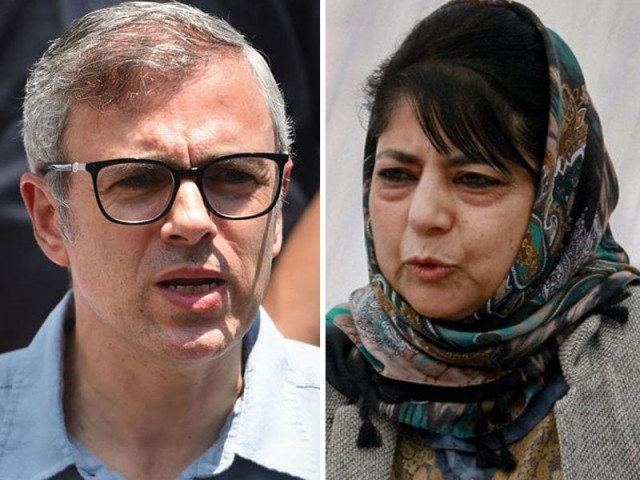
Two former chief ministers of IOK, Omar Abdullah and Mehbooba Mufti. PHOTO: FILE
The latest detention order was issued under the draconian Public Safety Act, which allows detention without charges for up to two years, the officials in Srinagar told Reuters.
The four included two former chief ministers of IOK, Omar Abdullah and Mehbooba Mufti, and two regional party leaders, Ali Mohmmad Sagar and Sartaj Madni, the officials said.
PM advises ‘delusional’ Modi to ‘get lesson in history’
They were originally held under a law that allowed a maximum of six months, and their detention was about to expire.
“The law does not allow preventive detention beyond six months. So they had to be either released or booked under PSA,” said one government official on condition of anonymity.
“Several other regional leaders who have also completed six months under preventive detention are likely to be booked under PSA,” the second official said.
The officials requested anonymity due to the sensitivity over security matters. Reuters sought a response from the Indian Home Ministry, but its spokesperson was unavailable for comment.
The same ministry in a reply before the parliament on Thursday had said 389 people in IOK were already booked under PSA since August last year.
Some of those detained have been put under house arrest, while others have been taken elsewhere.
Rights group Amnesty International has described the PSA as a “lawless law”.
Mehbooba Mufti’s daughter Iltija Mufti confirmed her mother’s detention under the law on Twitter.
“Slapping the draconian PSA... is expected from an autocratic regime that books nine-year-olds for ‘seditious remarks’. Question is how much longer will we act as bystanders as they desecrate what this nation stands for?” said Iltija in a tweet.
Ms Mufti received a PSA order sometime back.Slapping the draconian PSA on 2 ex J&K CMs is expected from an autocratic regime that books 9 year olds for ‘seditious remarks’. Question is how much longer will we act as bystanders as they desecrate what this nation stands for?
— Mehbooba Mufti (@MehboobaMufti) February 6, 2020
The removal of autonomy and subsequent crackdown in IOK drew international criticism, and diplomats from several countries say they have raised human rights concerns with India’s foreign ministry.
Last month, India’s Supreme Court rebuked New Delhi for shutting down Internet and telecommunications in the state.
A ban on public meetings remains in place, but unrest seen in the weeks after Indian Prime Minister Narendra Modi’s government stripped IOK of its autonomy has died down, and an uneasy calm prevails amid a heavy security presence.
Modi’s government has argued that the detention of politicians and internet blackout were needed to maintain order in a region.
Ahead of scrapping of IOK’s autonomy, India had detained around 5,000 people including businessmen, civil society members, lawyers and activists to prevent protests breaking out.

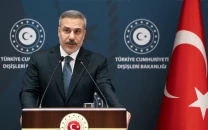
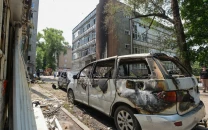
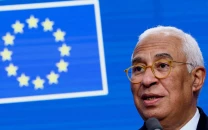
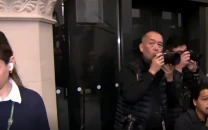














COMMENTS
Comments are moderated and generally will be posted if they are on-topic and not abusive.
For more information, please see our Comments FAQ